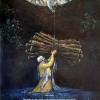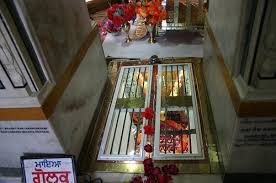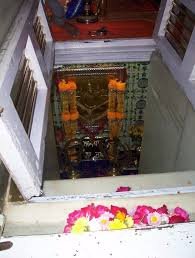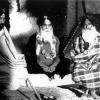Search the Community
Showing results for tags 'sahib'.
-
Waheguru ji ka khalsa waheguru ji ki fateh. Sangat ji, daas started writing a pothi sahib earlier last year but did not bother to ask any rules or anything. Could you guys give me advice on which bania I should write. Right now I have japji sahib, jaap sahib, swaiye, chaupai sahib, and like 10 pauria of anand sahib. I am planning on writing full nitnem and extra banis like sri shaster naam mala and braham kavach. Baaki, daas keeps sucham and treats the panne with satkar. Please just warn me of any other rules of writing gurbani. Bhul chuk maaf waheguru ji ka khalsa waheguru ji ki fateh. Btw I can't send pics right now but I will try soon.
-
WARNING: IF YOU ARE GOING TO COMMENT ON MY POSTS, PLEASE BE MATURE AND ONLY USE FACTS, NO DRAMA PLEASE Waheguru Ji Ka Khalsa, Waheguru Ji Ki Fateh! Sikhs often love to claim that their "holy book" (Ignore the Abrehamic context) was written and sealed by its founders, and Sikhs still use the same version to this day. However, there have been numerous controversies over the validity of certain passages (you all know what im talking about). Since the original Saroop of the Guru that was written by Bhai Mani Singh Ji and overlooked by Guru Gobind Singh Ji at damdama sahib in 1708 has been lost, and numerious others were destroyed as recently as in 1984 by the Indian Government (they still refuse to give some back), how will have Sikhs preserved the Siri Guru Granth Sahib Ji?
-
Wjkk Wjkf, Does anyone know of any document, pdf, or website that has all the words that appear in japji sahib divided by muhaarni? So a list of all the Mukhtas, then everything with kanna, then siharee, biharee, etc. Thanks
-
Who exactly reviews english translations? As i read a lot of different versions, which is right? We really need to sort this out as it distorts the truth.
-
1) i believe this is where Guru Tegh Bahadur Ji Maharaj did bhagti but is there anything below this cellar or is just the box below the ground that you can see onscreen? surely no-one can physically fit in such a small area?
-
Waheguru Ji Ka Khalsa. Waheguru Ji Ki Fateh! Often times I hear people say "SGGSJ doesnt say (insert topic) so it must be ok", and in the case of pre-marital sexual relations a dear friend of mine has made the same argument. My friend (non khalsa) argues that Bani specifically condemns rape, adultery, and polygamy, however isnt against sex outside of marriage, provided that both are not married to anyone, and have given consent. My friend likes to disregard anything outside SGGSJ. He brings up tuks from Gurbani that specifically mention "others wives" to support the argument that its specifically about adultery, however I would argue, the English translation is very shallow, and in the context of Bani, "others wives" is also talking about anyone who isnt your wife, and isnt limited to adultery, but also anyone who isnt married. Example 1: Siri Guru Granth Sahib Ji, Ang 274 ਪਰ ਤ੍ਰਿਅ ਰੂਪੁ ਨ ਪੇਖੈ ਨੇਤ੍ਰ ॥ Par Thria Roop N Paekhai Naethr || ਪਰ means other ਤ੍ਰਿਅ means wife Example 2: Siri Guru Granth Sahib Ji, Ang 1013 ਇਸਤ੍ਰੀ ਤਜਿ ਕਰਿ ਕਾਮਿ ਵਿਆਪਿਆ ਚਿਤੁ ਲਾਇਆ ਪਰ ਨਾਰੀ ॥ Abandoning his own wife, he is engrossed in sexual desire; his thoughts are on the wives of others. Context: Its not just talking just about adultery, the English translations are limiting, generally the concept is to not covet another wife, in the context of Bani, doesn't mean you can have sexual relations with women who are not married. Our rehat and history make it clear that one cannot have any sexual relations outside of marriage. There is a specific reason the Guru had 10 forms over 200 years, it was to show Sikhs how to live and practically apply Bani, otherwise the SGGSJ would have been all compiled by Guru Nanak and there would be no long history of the Guru in his many forms. The SGGSJ isnt a rule book, and isnt going to specifically ban everything that we know is immoral. Where in SGGS Ji does it say that Sri Guru Har Rai Sahib Ji was the 7th Guru Sahib after Sri Guru Hargobind Sahib Ji? Why would a primary Sikh text not name him? In terms of Gurbani, when taken into context, and even compared to rehat and our history, its clear that sexual relations outside of marriage are discouraged. Do you agree with my argument? These are just a few tuks I decided to bring up, if anyone has any more, please feel free to share!
-
Were Sant Baba Atar Singh Ji Reru Sahibwale and Sant Baba Atar Singh Ji Mastuana the same person?
-

Is The Buddha Dhal Gutka Sahib Available In English?
navsingh479 posted a topic in WHAT'S HAPPENING?
Apart from the sundar gutka app which is great but I want a book copy. -
Do you know about Nankana Sahib saka (massacre)? Why and when did it happen? What was the outcome? Know everything in this infographic produced by Sikh Stage Check out the infographic here - http://on.fb.me/1EuOvpc Brief history about the incident explained in a simple way.
-
Waheguru Here is in audio version of the diary of Sant Baba Isher Singh Ji Rara Sahib, these are selections from the diary this is from gurbaniupdesh.org under audio book section Baba ji shares his thougts on the purpose of life, Naam Simran, Seva, and jugtis of simran. Roohani Marg 1 Roohani Marg 2 Roohani Marg 3
-
Waheguru Ji Ka Khalsa Waheguru Ji Ki Fateh Dear Khalsa Ji, You are all invited to Celebrate the Birth of the Khalsa Panth at the Sikh Missionary Society (U.K) - Sikh Missionary Society U.K. (Regd.) 10, Featherstone Road. Southall, Middx, UB2 5AA http://www.sikhmissionarysociety.org Programme Details 25th April 2014 10.00 – Arambh Sri Akhand Path Sahib 26th April 2014 16:00 to 19:00 – Kavi Darbar 27th April 2014 10.00 – Bhog Sri Akhand Path Sahib 10:30 to 11:15 – Kirtan by Sikh Children 11.15 to 12.30 – Kirtan and Katha Waheguru Ji Ka Khalsa Waheguru Ji Ki Fateh
-
I was reading "Harmander Darshan" by Dr. Saroop Singh Alag, where he beautifully explained in couple of lines, why "Harmander Sahib" is called "Harmander Sahib". He says, where there is hanuman moorti/idol, it's called Hanuman Mander, if they have shiv moorti, it's called Shiv mander, so and so. But Sri Harmander Sahib is the house of Hari - hareya hoeya, saareyan nu hareya karan wala, har tha vasan wala, har-ik di paalna/daya karan wala, har-ik de layi khula, thats why its called "Harmander Sahib". The writer has also shared real-life stories of the sikhs and non-sikhs having amazing spiritual experiences in Harmander Sahib. I'll try to post them in short as I read along. waheguru
-
Wrong Gurbani translations and ignorance are being used by several Dawah and Christian Missionary organisations. Even if not, it is our duty to understand GurShabad correctly, so lets use this thread to correct (wrong) prevalent Shabads. ਮੁਸਲਮਾਣੁ ਕਹਾਵਣੁ ਮੁਸਕਲੁ ਜਾ ਹੋਇ ਤਾ ਮੁਸਲਮਾਣੁ ਕਹਾਵੈ ॥ ਅਵਲਿ ਅਉਲਿ ਦੀਨੁ ਕਰਿ ਮਿਠਾ ਮਸਕਲ ਮਾਨਾ ਮਾਲੁ ਮੁਸਾਵੈ ॥ ਹੋਇ ਮੁਸਲਿਮੁ ਦੀਨ ਮੁਹਾਣੈ ਮਰਣ ਜੀਵਣ ਕਾ ਭਰਮੁ ਚੁਕਾਵੈ ॥ ਰਬ ਕੀ ਰਜਾਇ ਮੰਨੇ ਸਿਰ ਉਪਰਿ ਕਰਤਾ ਮੰਨੇ ਆਪੁ ਗਵਾਵੈ ॥ ਤਉ ਨਾਨਕ ਸਰਬ ਜੀਆ ਮਿਹਰੰਮਤਿ ਹੋਇ ਤ ਮੁਸਲਮਾਣੁ ਕਹਾਵੈ ॥੧॥ 141, Guru Granth Sahib Ji Wrong translation: Where is anything like 'religion of the Prophet' 'faith of Mohammad' mentioned in the original Gurbani? Actual translation (taken from SearchSikhism): It is difficult to be called a Muslim; if one can become a true Muslim (by surrendering completely to the Will of Waheguru), only then he may be called one. First requirement to become a true Muslim is to love the Dharam (religion) i.e. truth. Then cleanse the mind by sharing the wealth with poor and needy. This way false pride of possessions of worldly wealth goes away. Secondly, if the Gurbani tells one to become a true Muslim then why doesn't it say to recite Kalimah, the Quran, Namaz, go on Hajj, etc ? Muslim word is being redefined just like Jati ceases being celibacy when used in Gurbani context. Please post more Shabads and try to correct them.
-
The political correctness is ruining our Nation. The 'all religion leading to God' mentality is a major cause for inter-faith marriages and conversions of Sikhs. The idea does not find any place in Gurmat, for religious practices of Islam, Hinduism, Jainism were rejected and heavily criticised in Dhur Ki Bani, Guru Granth Sahib. The Gurus and Bhagats rejecting Islam (Hajj, Circumcision and Ramadan) I do not keep fasts, nor do I observe the month of Ramadaan. (M5, 1136, Guru Granth Sahib) Because of the love of woman, circumcision is done; I don't believe in it, O Siblings of Destiny. Devotee Kabir (Bhagat Kabeer, 477, Guru Granth Sahib) The Gurus and Bhagats rejecting Hinduism (Idol Worship, Teerath Yatra, Ekadashi fast amongst others) I have stopped fasting on Ekadashi; why should I bother to go on Teerath to sacred shrines? (Bhagat Naamdev, 718, Guru Granth Sahib) O brother, why worship idols of gods and goddesses, what can you ask of them and what can they give to you? What is the use of washing stones, which themselves drown in water? (M1, 637, Guru Granth Sahib) I have searched many Shastars and Simrtis, they do not show the way to God, but contemplation on God is invaluable. (M5, 264, Guru Granth Sahib) Guru Nanak Sahib's satire of Jainism (about 5 million followers) Shalok, First Mehl: They pluck the hair out of their heads, and drink in filthy water; they beg endlessly and eat the garbage which others have thrown away. They spread manure, they suck in rotting smells, and they are afraid of clean water. Their hands are smeared with ashes, and the hair on their heads is plucked out-they are like sheep! They have renounced the lifestyle of their mothers and fathers, and their families and relatives cry out in distress. ... (M1, 148, Guru Granth Sahib Ji)
-
Wahegurujikakhalsawahegurujikifateh, Children's Sikhi Class Syllabus If you were to design a syllabus for children (8-14) attending a weekly, 30 minute sikhi class what sort of syllabus would you have? When you were a child what did you want from your weekly Sikhi Class? What did you feel was missing? What were the main problems/failings? To address these: Where would you start? What are the key themes you would cover? How would you hope to cover sikh theology, philosophy, history, maryada, and relevance? How would you go about assessing their understanding? Are there any key resources that you would recommend? What methods could you use to further engage the children? I hope by the end of this thread we can have developed a basic syllabus - I have a group of children at the Gurudwara Sahib who would be willing volunteers for a Sikhsangat.com experiment. Wahegurujikakhalsawahegurujikifateh
-
Wahegurujikakhalsawahegurujikifateh There was a Bhagat from Lahore called Chajju. One day at his door two labourers were stood outside. At the time it was raining. Bhagat Chajju looked at the labourers and asked why they were stood outside his door. They looked at Bhagatji and said that they work for a living outdoors doing labour. Their condition was such that when they didn't work, they didn't eat. They explained to Bhagatji that when it rains they don't find much work. As a consequence they had come to Bhagat Chajjuji's door in the hope of finding some work. Bhagatji invited them into his house to offer them work . He said not only will I feed you - sugar and koi - but I will pay you double your usual rate. Bhagatji offered 8 annas instead of the 4 annas the labourers were usually paid for a days work. Bhagatji then sat the two labourers down, gave them malas and said sit down and doing abhiyaas of Raam. At the end of the day Bhagatji fed the labourers and paid them 8 annas. He then told them come here daily and partake in this work and I will continue to pay and feed you in this way. The labourers looked at Bhagat Chajjuji and said this work is too difficult to do. We would rather lift and break stones than do hard manual labour than this work... Loose translation of Katha by Sant Gyani Baba Gurbachan Singh Ji Bhindranwale Why is it so hard? Wahegurujikakhalsawahegurujikifateh
-
Wahegurujikakhalsawahegurujikifateh One time Sant Baba Bishan Singh Ji, the 10th jathedhar of Satguru Sri Guru Gobind Singh Ji's Damdami Taksal decided to visit Amritsar and in particular Sant Baba Shaam Singh Ji. Sant Baba Shaam Singh Ji was the kirtani of Sachkhand Sri Harmandir Sahib Ji who had spent over 90 years doing seva with his Sarandha. Sant Baba Bishan Singh Ji and the jatha had done darshan at Harmandir Sahib Ji and then began to make their way to the asthan of Santji. As they reached there they found an old singh cleaning the sewer/drain. They asked where Sant Baba Shaam Singh Ji was and were advised by the old Gursikh to go inside the asthan and sit down and Santji would be with them soon. The old Gursikh then did Panj ishnaan and went and sat in front of them. When he did this he was asked again that they wished to have darshan of Sant Baba Shaam Singh Ji - the old Gursikh relied that the vessel sat before them was Sant Baba Shaam Singh Ji. Waheguruji... May Maharaj bless with with such humility. Loose translation of Katha by Giani Ram Singh Ji Wahegurujikakhalsawahegurujikifateh
-
Wahegurujikakhalsawahegurujikifateh, Came across these videos some time ago. Mahapursh sat in their own mauj listening to Dhur Ki Bani...is there anything more beautiful? For those of you who don't know Sant Baba Joginder Singh Ji did seva at Sachkhand Sri Hazur Sahib for over 40 years - for 12 of these he didn't utter a single word and instead was engrossed in naam abhiyaas. Wahegurujikakhalsawahegurujikifateh
-
Wahegurujikakhalsawahegurujikifateh, Has anyone read this book on Sri Zafarnama Sahib Ji? If so what did you make of it? Is it worth buying? The following is a book description on Amazon: Louis E. Fenech offers a compelling new examination of one of the only Persian compositions attributed to the tenth Sikh Guru, Guru Gobind Singh (1666-1708): the Zafar-namah or 'Epistle of Victory.' Written as a masnavi, a Persian poem, this letter was originally sent to the Mughal emperor Aurangzeb (d. 1707) rebuking his most unbecoming conduct. Incredibly, Guru Gobind Singh's letter is included today within the Sikh canon, one of only a very small handful of Persian-language texts granted the status of Sikh scripture. As such, its contents are sung on special Sikh occasions. Perhaps equally surprising is the fact that the letter appears in the tenth Guru's book or the Dasam Granth in the standard Gurmukhi script (in which Punjabi is written) but retains its original Persian language, a vernacular few Sikhs know. Drawing out the letter's direct and subtle references to the Iranian national epic, the Shah-namah, and to Shaikh Sa'di's thirteenth-century Bustan, Fenech demonstrates how this letter served as a form of Indo-Islamic verbal warfare, ensuring the tenth Guru's moral and symbolic victory over the legendary and powerful Mughal empire. Through analysis of the Zafar-namah, Fenech resurrects an essential and intriguing component of the Sikh tradition: its Islamicate aspect. Gururakha, Wahegurujikakhalsawahegurujikifateh












